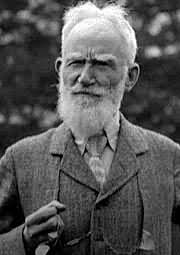Rewriting
July 8, 2016
In K. Scott Oliphint’s Covenantal Apologetics there is a subtle reformulation of the doctrine of WCF 7.2. Says Oliphint (p. 40):
There is a great chasm fixed between God and his creatures, and the result of such a chasm is that we, all of humanity, could never have any fruition of God, unless he saw fit, voluntarily (graciously), to condescend to us by way of covenant.
This way of putting things quietly excludes the covenant from being a matter of indifference. Whereas for Westminster both the fact and the means of God relating to man as his blessedness and reward are due voluntary condescension, it would seem that for Oliphint if God meant to relate to man, covenant was the only way available.
It is, in fact, a quite similar line of reasoning to that hypothesis of consequent absolute necessity adopted by John Murray vis-a-vis the atonement in Redemption Accomplished and Applied. It is also in keeping with the dislocation of the covenant of works from providence to creation.
In this way, it is possible to profess adherence to the Westminster Confession, while simultaneously altering its meaning and emphasis.
The Howling Wilderness has moved…
October 6, 2006
The Howling Wilderness has moved to http://vahskresenye.solideogloria.com. Please update your links and bookmarks accordingly.
Where Grace Reigns
October 4, 2006
Rev. Matthew Winzer (armourbearer on the Puritanboard on this thread) made the following statement (emphasis mine)
…in reformed churches, where free grace is proclaimed loud and clear, blessings joined to obedience should never be called law-preaching. I tend to think it is only a soul stricken by the law that could construe it that way; where grace reigns every precept is a precious promise of God’s goodness to His people.
A Good Quote For When You Feel Guilty About Being Lazy
October 3, 2006
…not that that ever happens to me, of course.
Thomas Decker, quoted in Dorothy Sayer’s “Gaudy Night”
Do but consider what an excellent thing sleep is: it is so inestimable a jewel that, if a tyrant would give his crown for an hour’s slumber, it cannot be bought: of so beautiful a shape is it, that though a man lie with an Empress, his heart cannot beat quiet till he leaves her embracements to be at rest with the other: yea, so greatly indebted are we to this kinsman of death, that we owe the better tributary, half of our life to him: and there is good cause why we should do so: for sleep is that golden chain that ties health and our bodies together. Who complains of want? of wounds? of cares? of great men’s oppressions? of captivity? while he sleepeth? Beggars in their beds take as much pleasure as kings: can we therefore surfeit on this delicate Ambrosia? Can we drink too much of that whereof to taste too little tumbles us into a churchyard, and to use it but indifferently throws us into Bedlam? No, no, look upon Endymion, the moon’s minion, who slept three score and fifteen years, and was not a hair the worse for it.
What Does the Devil Think about Jesus?
October 2, 2006
G. Campbell Morgan, The Crises of the Christ, Part Three — The Temptation, Conclusion
In the last temptation there is an intimation of the devil’s estimate of the worth of Jesus. After showing Him the kingdoms of the world and the glory of them, he declared his conviction that to capture the soul of Christ would be a greater victory than all his conquests. He reckoned this perfect Man to be worth all over which he claimed to have gained authority. “All these,” said the enemy, and the offer included the result of the dreadful persistency of diabolical endeavour through long centuries, the evolution of evil through tedious processes. The spotless Son of God was, in the estimate of the devil, of more value than all. In effect the enemy said, I will give to Thee all that has cost so much, if I may but gain for one moment Thy homage. It is a stupendous and startling revelation, the devil’s estimate of the worth of Christ. There are persons who say that they cannot understand the expiatory work of Christ on the Cross, because of the difficulty of believing that the suffering and death of One could possible be sufficient for the redemption of the world. Those who speak of this difficulty evidently hold Christ at lower valuation than did the devil. He, comparing the world with the Master, tacitly acknowledged the greater worth of Jesus. Satan evidently reckoned that unless he could bring Christ into subjection, nothing he had, would he be able to hold. He evidently recognised the infinite value of this second man; and understood, moreover, the relation of that undepreciated value to the redemption of the world.
Appreciation, Understanding and Controversy
September 30, 2006
It is very easy to assume that if someone does not agree with us it must be because they do not understand what we have to say. Now that is certainly an option; many times people do misunderstand. But I doubt that we would be content to have that criticism applied to ourselves. Both credo and paedo baptists feel to some degree that the other side doesn’t get it. Yet, whichever side of that debate we may be on, we probably would not accept that we don’t understand the other side.
And so it is helpful to distinguish between understanding and appreciating. I may have a grasp of the essential details of an argument, and yet it fails to have weight with me: I do not appreciate it. I remember reading in one of Bernard Shaw’s prefaces one of the most clear statements of the Gospel that I had encountered up to the time; it would have been silly for me to lay a charge of misunderstanding. The problem was not intellectual, on his part; although he grasped, he did not like it, he did not appreciate.
Now, when you add to that the fact that there are areas where we might be wrong, it becomes clear that disagreement is not always due to ignorance or stupidity on the part of the other guy. I am aware that we don’t feel wrong; but we didn’t feel wrong several years ago, either, and yet look how that turned out.
So in controversy, the problem is not always with them.
Yet that statement also needs to be balanced. Rejecting some things does show ignorance, stupidity, or moral turpitude. If someone does not believe that Jesus is the Christ, then that really is their problem. And of course, to some degree, all error is the result of sin and the damage that sin has wrought on our noetic faculties. But here we would do well to distinguish, between what must necessarily be a failing on the part of the adversary, and what may be a failing on our part (or what is a less significant difference). Failure to do so not only puts us in company with Calovius and leaves us in danger of a tu quoque: it is also a violation of the Golden Rule. There is no doubt that in controversy, at least on certain points, we would like the other side to listen carefully and entertain the possibility that we might be right; but then would Jesus’ words not obligate us to treat them likewise?
The Arrangement of Matthew
September 29, 2006
Augustine: Are Unbelievers United to Christ?
September 29, 2006
On the internal/external covenant membership distinction: De Doctrina Christiana, book 3, ch. 32
THE SECOND RULE OF TICHONIUS
The second rule is about the twofold division of the body of the Lord; but this indeed is not a suitable name, for that is really no part of the body of Christ which will not be with Him in eternity. We ought, therefore, to say that the rule is about the true and the mixed body of the Lord, or the true and the counterfeit, or some such name; because, not to speak of eternity, hypocrites cannot even now be said to be in Him, although they seem to be in His Church. And hence this rule might be designated thus: Concerning the mixed Church. Now this rule requires the reader to be on his guard when Scripture, although it has now come to address or speak of a different set of persons, seems to be addressing or speaking of the same persons as before, just as if both sets constituted one body in consequence of their being for the time united in a common participation of the sacraments.
Dr. Clowney on the Temple
September 28, 2006
If you haven’t yet, you should read this article.
A good quote from it:
It is not so much that Christ fulfills what the temple means; rather Christ is the meaning for which the temple existed.






